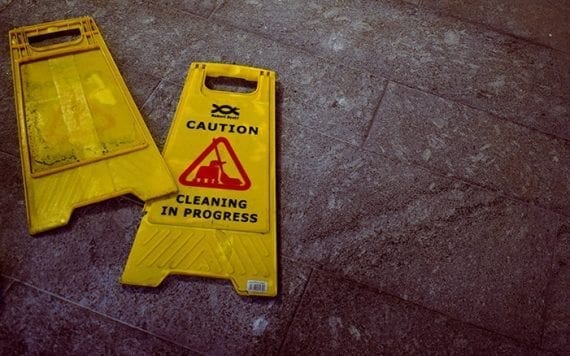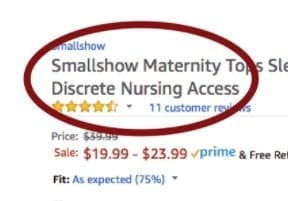Retailers selling in a brick-and-mortar store or via ecommerce have a responsibility to provide a safe work environment. Moreover, they may have a statutory requirement to purchase workers’ compensation insurance to ensure that employees get the care they need to recover and replace wages when accidents happen, and they are unable to work.
The U.S. Department of Labor’s Office of Workers’ Compensation Programs “administers four major disability compensation programs which provide wage replacement benefits, medical treatment, vocational rehabilitation, and other benefits to certain workers or their dependents who experience work-related injury or occupational disease.”
The specifics of these compensation programs are state regulated. So the requirements for a particular retail store or online shop will depend on state law.
It is also important to remember that workers’ compensation benefits can be issued regardless of who is at fault — be it the employee, employer, or even a third party.
Injured employees who accept workers’ compensation benefits may not sue their employers for the covered injury. So there is a sense in which workers’ compensation insurance protects businesses.

As a business grows and hires employees, it will need to get workers’ compensation insurance. Image: Oliver Hale.
Coverage Mandates
If your company has employees (or possibly even contractors), it needs to determine whether state law requires workers’ compensation coverage. The previously mentioned Office of Workers’ Compensation Programs keeps a list of each state’s workers’ compensation office. So this should be your starting point.
There can be significant differences among states. In some cases, even sole proprietors may need to purchase workers’ compensation insurance for family members who help. Or your company might need to cover a contractor working from home in another state. Just be certain to check what the state requires.
A payroll management service or, in some cases, even good payroll software can also help your business determine if workers’ compensation insurance is required. Payroll plays a role in how premiums are calculated, which is why many payroll companies will handle workers’ compensation too.
Insurance Options
In general, workers’ compensation insurance is simply coverage your company buys. What government entity or private insurer your company purchases it from depends on your state’s program.
In many states, a retail business can buy workers’ compensation insurance from a private insurance company. This might be the same company your business uses for general liability or other forms of insurance.
Your company might use a state-backed insurer or even a state-managed fund. In some states, very large businesses may be permitted to fund their own workers’ compensation program.
Premiums
As with other forms of insurance, a retailer will make premium payments for coverage. How much is paid depends on three factors: what sorts of jobs are being covered, how large the payroll is, and the company’s claim history.
A company could pay a lot if it had many employees doing dangerous warehouse work, as could a company with a history of workers’ compensation claims.
Insurers and state authorities use workers’ compensation codes to rate how dangerous a particular job may be. These codes are detailed descriptions of the work activities and potential hazards associated with a given job. Codes differ from state to state, and there are several hundred codes in use.
Each code is assigned a rate. For example, in Idaho, code 7360000 is a freight handler. At the time of writing, that code had a rate of $5.09 per $100 of payroll. This rate becomes the first variable in the premium calculation. In the example below, you would replace RATE with $5.09.
RATE x (PAYROLL/100) x EXPERIENCE MODIFIER = PREMIUM
The PAYROLL variable is simply how much your business spends on a given job type organized into $100 units for comparison. For example, if your company pays $300,000 per year in wages for freight handlers, the calculation would be $300,000 divided by 100.
EXPERIENCE MODIFIER represents your business’s workers’ compensation claim history. If your company submits more claims than average, it would have a modifier greater than 1.00. If it has fewer claims than average, it would have a modifier less than 1.00. An average claim history would have a modifier of 1.00.
Let’s assume your company is a bit better than average. It might have an EXPERIENCE MODIFIER of 0.90. Using that modifier and the numbers from above, let’s look at an example premium calculation.
$5.09 x ($300,000/100) x 0.90 = $13,743.00
In this case, the premium would be $13,743.00 per year or about 4.5 percent of the total payroll for freight handlers.
Note that this is a basic example. Many state programs offer discounts for quarterly or annual payments. State laws can also modify this basic equation. And other factors may be considered for some states or industries. So don’t treat this example as the gospel truth; it is meant to describe important factors that contribute to workers’ compensation premiums.
Reduced Premiums
Picking, packing, and shipping orders for an ecommerce store are not as hazardous as, say, working with high-voltage electricity or fighting fires. But there are still dangers from slips, falls, cuts, strains, and similar. For the sake of your employees, do everything you can to create a safety culture to avoid injuries.
This may include (a) having a third-party audit your facility for potential hazards, (b) offering safety training, (c) holding regular safety meetings, (d) appointing safety champions, and (e) ensuring that workers have the proper tools. For example, a specialized box knife may be safer than a pocket knife for opening boxes.
Many states and many insurers have training programs that will also help your business improve workplace safety.
If you can help your workers stay safe, your company can ultimately reduce its experience modifier. A lower modifier results in a lower premium. Just be aware that it can take a few years for a modifier to be established.
After improving safety and awareness, your company might also look at your job codes. Using Idaho as an example, there are two codes for freight handlers. Code 7360000, used above, has a rate of $5.09. But code 7350000, which is also a freight handler, has a rate of $15.60 per $100. Thus making certain that your workers are properly classified may lead to cost savings, too.




